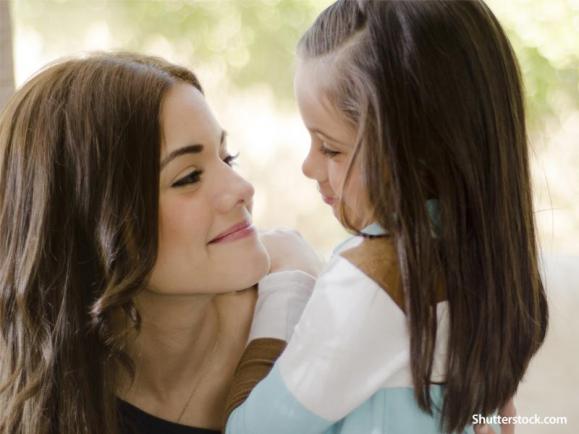
Many divorced couples admit to staying married despite their unhappy relationship because they were worried about how separation would affect their children. But research proves that the majority of divorces do not have long term effects on their children.
Psychologist Constance Ahrons, author of the book We're Still Family has dedicated 20 years of research to divorce. Her studies have found that about 80 percent of children of divorce adapt well and don't see lasting negative effects on their grades, social adjustment, or mental health.
Ultimately, the emotional well-being of parents is extremely important to their children's ability to move forward and thrive. If a child witnesses their parent not taking care of themselves, that is actually more harmful; thus, staying in an unhappy and unhealthy marriage has more lasting effects on a child versus the actual divorce.
Child development expert and Cambridge University professor Michael Lamb published an interesting meta-study, "Mothers, Fathers, Families, and Circumstances: Factors Affecting Children's Adjustment." The study concluded a few essential takeaways that divorced parents need to know:
-
- Children need resources such as food, safe and stable housing, and social support. Children do not need a mansion or an endless toy box. Those essentials can be provided by parents, not married, and living in separate houses.
- Children need emotionally stable parents. In order to be effective, parents (both individuals) need to establish stable living environments, fair discipline, love, and emotional responsiveness.
Lamb's work reflects what many other scholars have also found, marriage isn't what matters when it comes to having healthy and happy children. "The mere fact that the majority of children raised in single-parent or divorced families are well-adjusted undercuts the argument that children' need' to be raised in traditional families. These process factors, rather than family structure, affect adjustment in both traditional and non-traditional families, said Lamb.
Now that we have the data and overall statistics, you're probably still wondering, "How do divorced parents raise happy children?" Here are our recommendations, based on the feedback from successfully divorced couples:
Strive to communicate effectively.
Strive to communicate with your ex-spouse every day about your child. It doesn't need to be a long conversation, but keeping each other up to date on a daily basis will eliminate potential issues from becoming a big deal. Moreover, it also eliminates any potential communication barriers that may arise with your children. Develop a system that works best for you and your ex – a daily text message recapping schoolwork progress, behavior, and/or upcoming dates.
Maintaining a foundation of communication will help your family unit overcome any issues that comes up. Give your ex-spouse the same grace and consideration that you want.
Don't speak negatively of the other parent.
Everyone has feelings, and divorce can be challenging, but it is crucial that you do not speak badly about your ex-spouse or of their new partner. Children may feel overwhelmed by your negative remarks and be compelled to choose sides. Try to discuss your feelings and have heated conversations away from your children whenever possible.
Don't exclude anyone.
Even though you have chosen to live separate lives, it is important to not exclude each other from important events such as birthdays, school events, plays, games, or any other big events involving your children. You can be courteous and cordial without being fake. Having a stable relationship as co-parents will make a huge difference in your child's overall well-being. Creating shared experiences, even when you're separated, will help your child in the future as they look back on their childhood and upbringing.
Honor best practices.
Don't be petty! There will be times when you are frustrated and stressed; however, you should strive to honor the system of overall best practices. Try to put yourself in their shoes and treat each other with respect. Being petty and rude will only make situations more awkward and harder for your child to deal with. Try to take the high road.
If you feel like your spouse is disrespectful or hurtful, step aside and have a calm discussion away from other people. Ideally, treat each other how you want to be treated.
Maintain routine and consistency.
Children thrive when they're abiding by a routine and have consistency. Do your best to create a schedule that works for your entire Family – ex-spouse included. Work together with your ex-partner, to create a schedule that is meaningful and collaborative.
Both parents should follow the schedule and practice the same reward and discipline plans. Having this will provide needed structure between both households for your child.
Reassure your children that it's not their fault and they are loved.
It is common for children in divorced families to blame themselves for their parent's separation. Discuss together and individually with your child that it's not their fault. Be ready for tough questions and respond with thoughtful, clear, and honest answers. As the parent, it is important to reassure your children that they are safe and will always be loved despite the divorce.
Limit your drastic changes in the beginning.
Try to avoid any big moves, remarrying, or dating for a while. Too much change can challenge your child's ability to cope effectively and limit the feelings they need to experience during the divorce transition. Be mindful of other changes such as rising to the next grade at school, pets, or other friends moving – these small life changes can impact your child's progress of feelings.
Divorce isn't easy, and it involves everyone. It is important to make an effort to be present and maintain a good relationship with your ex-spouse. By abruptly reacting to actions and not being thoughtful, you will make your divorce situation tougher for everyone. Happily divorced can be your reality – you and your ex just need to be willing to put in the hard work to make it real!

